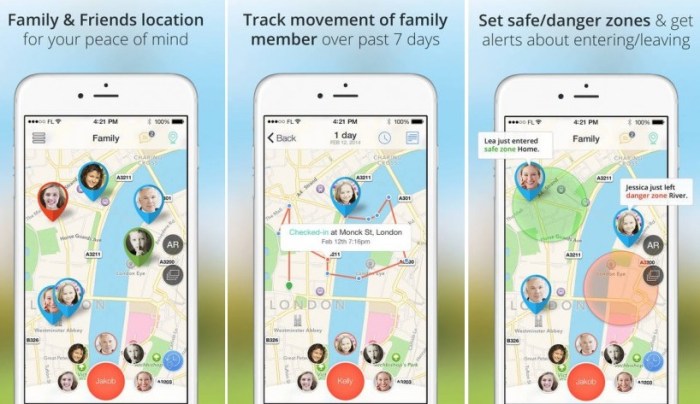Tracking Apps for iPhones: A Comprehensive Guide
Tracking apps have become increasingly popular for iPhones, offering a wide range of functionalities to manage various aspects of daily life. From fitness monitoring to location tracking, these apps cater to diverse needs and preferences. This guide delves into the world of iPhone tracking apps, exploring their features, user reviews, privacy concerns, and future trends.
Introduction to Tracking Apps
Various tracking apps are available for iPhones, each designed to track different aspects of a user’s life or activities. These apps often share common functionalities, but differentiate through specific features and user interfaces.
-
Types of Tracking Apps: These apps range from fitness trackers to location-based trackers, productivity tools, and even health management apps. Some apps focus on specific areas, while others provide a more comprehensive tracking experience.
-
Common Functionalities: Many tracking apps share basic functionalities like data logging, visualization of tracked data, and customizable settings. The ability to set goals, receive notifications, and share data with others are also common features.
-
Key Features Differentiating Apps: Features like detailed metrics, advanced analytics, integration with other apps, and the user interface design often distinguish one tracking app from another. Specific functionalities, like sleep tracking or social interaction monitoring, also vary significantly.
-
User Interface Elements: The user interface of a tracking app is crucial for usability. Clear displays, intuitive navigation, and user-friendly controls are essential elements. The ability to customize the display and settings also contributes to a positive user experience.
-
General Benefits of Using a Tracking App: Tracking apps can provide valuable insights into various aspects of a user’s life, such as fitness levels, productivity, or travel patterns. These insights can lead to improved decision-making and better habits.
Features Comparison
Comparing top-rated tracking apps reveals variations in features and functionalities. This comparison highlights the strengths and weaknesses of different apps in terms of specific features.
| App Name | Feature | Description |
|---|---|---|
| Fitbit | Step Counting | Provides precise step counts with detailed daily summaries. |
| Strava | Route Tracking | Records routes and activities with interactive maps and data analysis. |
| Google Fit | Activity Tracking | Tracks various activities, including steps, distance, and calories burned. |
Ease of use, accuracy, and reliability vary across different apps. These factors directly impact user experience and the effectiveness of the tracking process.
User Reviews and Ratings

User reviews offer valuable insights into the strengths and weaknesses of various tracking apps. Common positive and negative feedback provides a comprehensive view of user experiences.
| App | Average Rating | Common Feedback |
|---|---|---|
| Nike Run Club | 4.5 stars | Accurate step tracking, good interface, but some users report occasional data inconsistencies. |
User reviews are influential in shaping app choices, as users often rely on feedback to decide which app best suits their needs.
Privacy and Security Concerns
Privacy policies and data collection practices are crucial aspects of using tracking apps. Users need to understand how their data is handled to make informed decisions.
Security measures employed by different apps vary, emphasizing the need for users to scrutinize app security protocols and privacy settings.
Integration with Other Apps
Integration with other apps on the iPhone can significantly enhance the functionality of a tracking app. Data syncing and sharing between apps streamline the tracking process and provide a more comprehensive view of a user’s activities.
Specific Use Cases
Tracking apps offer various benefits in different scenarios, from fitness goals to productivity management. Features cater to different needs and objectives, offering tailored solutions.
Future Trends and Innovations
Future updates and improvements to tracking apps are likely to incorporate advanced technologies like AI and machine learning. These advancements will enhance the accuracy and user experience of tracking apps, providing more personalized insights.
Closure
In conclusion, iPhone tracking apps provide a dynamic and evolving landscape of tools for organizing and managing various aspects of daily life. From fitness tracking to location management, these apps offer practical benefits and innovative features. However, users must carefully consider privacy and security concerns, weighing the advantages against potential risks. By understanding the key features, user reviews, and privacy implications, users can select the optimal tracking app to meet their specific needs and expectations.